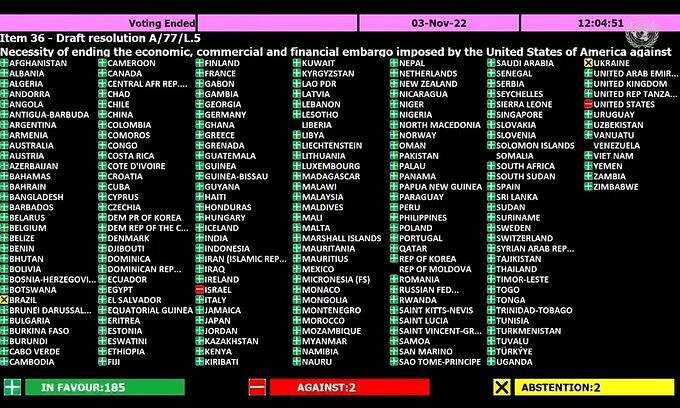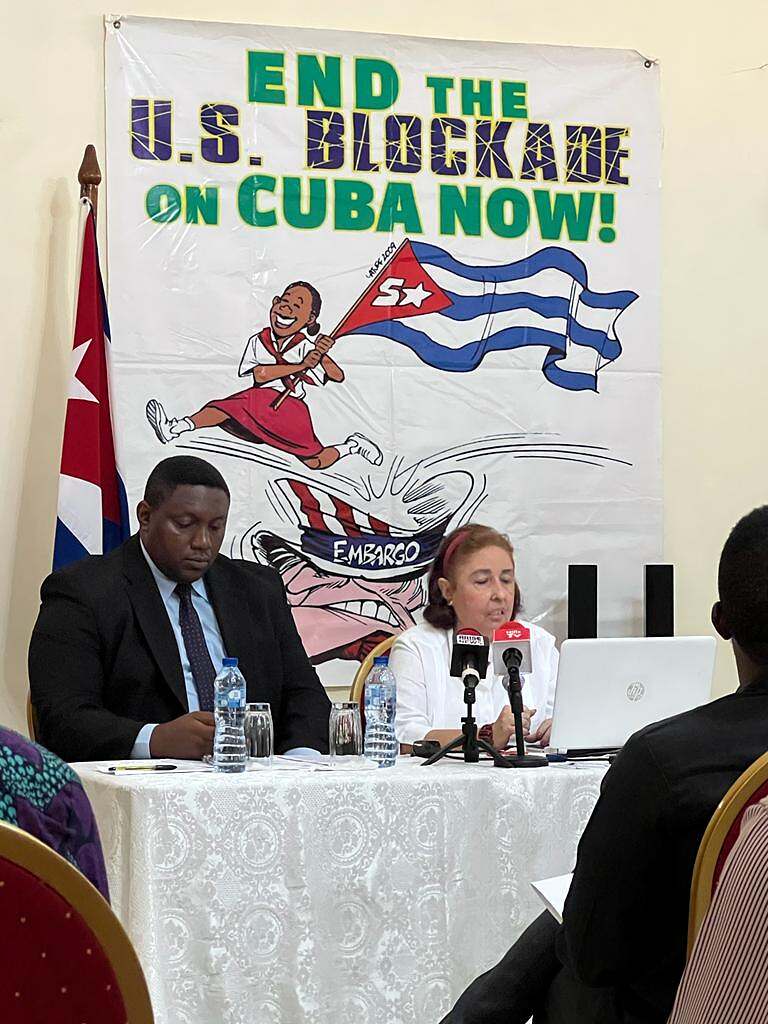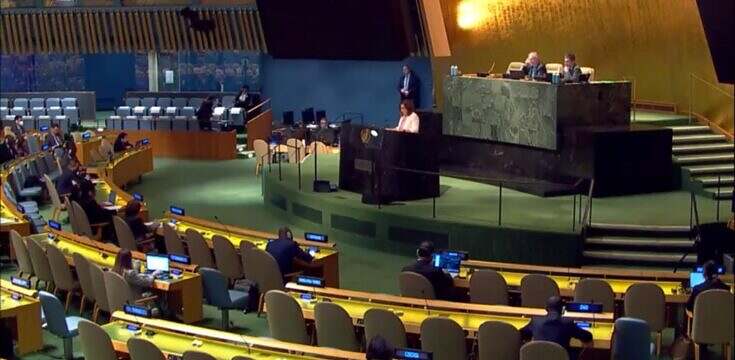Nigerian delegates to United Nation, today at the 26th plenary meeting, 77th session of General Assembly, joined the rest of conscious, humanitarian nations of the World, to vote against the continuous imposition of blockade against Cuba by United States of America.
 185 nations including Nigeria, voted in favour of lifting the blockade.
185 nations including Nigeria, voted in favour of lifting the blockade.
2 voted against, while 2 absented from voting.
The people of Cuba, expresses appreciation to Nigerians and all African nations that stood up and voted for the blockade to be lifted.
Today’s resounding victory, is one in 100s of similar resolutions passed by the General Assembly of UN. Unfortunately, USA has refused to honor and obey any of these resolutions.
Watch the Assembly meeting and voting:
https://media.un.org/en/asset/k1e/k1e5m6beo7
The United States embargo against Cuba prevents American businesses, and businesses organized under U.S. law or majority-owned by American citizens, from conducting trade with Cuban interests. It is the most enduring trade embargo in modern history.
 The US first imposed an embargo on the sale of arms to Cuba on March 14, 1958, during the Fulgencio Batista regime. Again on October 19, 1960, almost two years after the Cuban Revolution had led to the deposition of the Batista regime, the US placed an embargo on exports to Cuba except for food and medicine after Cuba nationalized the US-owned Cuban oil refineries without compensation. On February 7, 1962, the embargo was extended to include almost all exports.
The US first imposed an embargo on the sale of arms to Cuba on March 14, 1958, during the Fulgencio Batista regime. Again on October 19, 1960, almost two years after the Cuban Revolution had led to the deposition of the Batista regime, the US placed an embargo on exports to Cuba except for food and medicine after Cuba nationalized the US-owned Cuban oil refineries without compensation. On February 7, 1962, the embargo was extended to include almost all exports.
The United Nations General Assembly has passed a resolution every year since 1992 demanding the end of the US economic embargo on Cuba, with the US and Israel being the only nations to consistently vote against the resolutions.
As of 2022, the embargo is enforced mainly through the Trading with the Enemy Act of 1917, the Foreign Assistance Act of 1961, the Cuban Assets Control Regulations of 1963, the Cuban Democracy Act of 1992, the Helms–Burton Act of 1996, and the Trade Sanctions Reform and Export Enhancement Act of 2000.
The stated purpose of the Cuban Democracy Act of 1992 is to maintain sanctions on Cuba as long as the Cuban government refuses to move toward “democratization and greater respect for human rights.”
The Helms-Burton Act further restricted United States citizens from doing commerce in or with Cuba, and mandated restrictions on giving public or private assistance to any successor government in Havana unless and until certain claims against the Cuban government were met. In 1999, President Bill Clinton expanded the trade embargo by also disallowing foreign subsidiaries of U.S. companies to trade with Cuba. In 2000, Clinton authorized the sale of food and humanitarian products to Cuba.
William M. LeoGrande summarized that the embargo against Cuba is “the oldest and most comprehensive US economic sanctions regime against any country in the world” imposed over half a century ago. According to LeoGrande, “the embargo has never been effective at achieving its principal purpose: forcing Cuba’s revolutionary regime out of power or bending it to Washington’s will.”
https://en.m.wikipedia.org/wiki/United_States_embargo_against_Cuba




